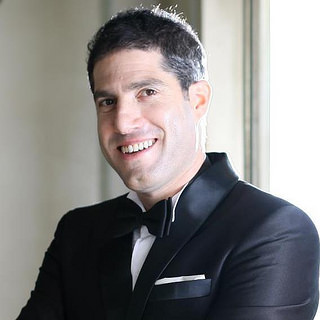국내 스타트업의 글로벌 진출이 화두입니다. 벤처스퀘어는 비욘드 시큐리티(Beyond Security)의 창업자이자 CEO로서 이스라엘 멘토로 구성된 한국 최초의 시드 펀드인 코이스라 시드 파트너스(KOISRA Seed Partners)의 이사인 아비람 제닉(Aviram Jenik)이 글로벌을 지향하는 한국 스타트업에게 전하는 칼럼을 연재합니다. 국내 스타트업의 글로벌 진출에 도움이 되길 바라며, 기사 게재를 허락해 주신 아비람 제닉에게 지면을 통해 감사 말씀을 전합니다. 칼럼 전체 내용은 여기를 참고해주세요.

스타트업 창업자들을 보면 하나같이 모든 것에 대해 정답을 찾으려 집착하는 듯 보이는데요, 가끔은 마치 이 정답을 찾아내야만 회사를 성공으로 이끌 수 있는 것처럼 보이기도 할 정도입니다. 그런데 여기 아주 중요한 하나가 빠져있는데요,
바로 무언가를 아는 것만큼이나 이를 실행하는 것 또한 중요하다는 점입니다.
그렇다면 성공 전략을 찾는데만 집중하는 루프에서 벗어나 실제로 그 전략을 실행하도록 하기 위해서는 무엇이 필요할까요? 여기 두 가지 방법이 있습니다.
우선 독자 분이 판단하시기에 본인 스스로가 아주 훌륭한 자기 제어가 된다고 보시는 경우라면, 단지 목표를 설정하고 이를 달성만 하시면 됩니다. 여기서 목표라는 건 달성하기도, 측정하기도 어렵지만 반드시 해결되어야할 부분을 의미하고요. 이미 자기제어가 잘 되시는 분이라면 일상의 다른 부분에서 이미 이런 식으로 일을 진행하고 있으리라 생각됩니다. 가령 매일같이 운동을 한다거나, 어떤 목표를 두고 공부를 한다거나, 정해진 약속을 지킨다거나 하는 식으로요. 이런 생활습관에 당신의 스타트업 라이프를 포함시킨 뒤, 노력이 아닌 결과에 대한 수치 값을 재어 보시길 바랍니다. 장거리 달리기 선수가 되기 위한 연습을 할 때, 달릴 거리와 시간을 측정한 뒤로 시간은 단축하면서도 달리는 거리는 늘리는 연습을 하는 것처럼요. 비슷하게 스타트업에 적용해본다면 성공이라는 목표를 두고 측정을 하는 셈입니다. 현재를 측정한 뒤 그 수치를 최대화 시키는 것이죠. 바라보는 목표와 현재의 상태 모두를 살펴본 뒤로, 아직 목표까지 도달하지 못한 상태라면 이를 개선해나가는 겁니다. 앞서 말했듯 자기 제어가 잘되는 분이시라면, 딱 여기까지만 알고 계셔도 됩니다. 칼럼의 뒷 부분은 더 이상 읽지 않으셔도 되요.
그런데 사실 우리 대부분은 자기 제어가 잘 안되는 편에 속하고, 누군가 곁에 조력자가 있을 때에 목표를 더 쉽게 달성할 수 있다는 사실을 잘 알고 있지요. 따라서 제가 말씀드릴 두 번째 방법이란 바로 외부에서 당신의 동기를 자극해줄 누군가를 지정하는 것입니다. 과거에 훌륭한 선생님의 지도 아래 어려워했던 과목을 수강해보신 적이 있나요? 바로 이런 종류의 도움을 스타트업으로서 받으셔야 된다는 말입니다.
그리고 놀랍게도 이런 도움은 한국이라면 아주 쉽게 찾아 받을 수가 있답니다. 얼마나 쉬운지, 스타트업들이 종종 ‘도움’과 ‘조언’을 헛갈려할 때가 있을 정도로요. 여기서 ‘도움’이란건 당신이 세운 목표까지 도달하는데 받을 수 있는 것을 말하고, ‘조언’이란 당신이 앞으로 나아가게끔 ‘전략을 찾아주는’ 것을 말합니다.
이에 대한 일상적인 예를 들어보자면, 가령 제가 한국 스타트업들에게서 발견하는 문제인 ‘MOS(Mentor Overflow Syndrome, 지나치게 많은 멘토를 두는 현상)’인데요, 이런 식입니다. 한 스타트업이 도움을 필요로하여 1~2명 정도의 멘토를 만납니다. 멘토들은 이 스타트업에게 각종 조언과 동기를 심어주고요. 이에 만족감을 느낀 스타트업이 회사로 돌아와서는 또다른 멘토를 찾아나서는 형태입니다.
그렇다면 현재 당신이 MOS 상태인지를 확인할 방법을 알려드리겠습니다. 멘토를 만났을 때, 이들이 당신에게 어떤 특정 행동을 하라고 말했나요, 아니면 그 행동을 하도록 도와주기만 했나요? 능동적으로 도왔다면 어떤 측정 가능한 효과를 보셨을 겁니다. 허나 그렇지 않은 경우라면 단지 말 뿐인 것이죠. 말은 그저 말일 뿐입니다.
혹시 멘토를 통해 당신이 어떤 행동을 실제로 행하고 있도록 도움을 받고 있나요? 가령 멘토와의 미팅에서 어떤 행동을 하기로 결심했다고 칠 때, 다음에 미팅을 한 번 더 잡아 이에 대한 진행상황과 목표달성 여부를 전달하느냐는 것입니다.
멘토의 역할이란 단지 당신의 기분을 좋게 만들어주는 것이 아니고, 또 동기만 부여해주는 것도 아닙니다. 이런건 그냥 페이스북에서 귀여운 고양이 사진만 찾아봐도 얻을수 있는 감정일 뿐이죠.
스타트업에게 조언자란 단지 도구일 뿐입니다. 도구를 잘못 이용한건 당신의 잘못이지, 도구의 잘못이 아니란 말입니다.
외부 조언자를 활용해 목표를 향해 다가서고, 이를 달성하거나 혹은 그 길 위에서 제대로 목표를 향해가고 있는지를 확인하세요. 어떤 종류의 수치로 정의된 목표들을 스스로 약속하여 이룰 수있도록 이들을 이용하시고, 그 뒤에 이들에게 그 결과를 알려주는 겁니다.
우리 모두 성공을 위해 중요한 것이란 바로 수치임을 알고 있지요. 허나 이제 당신은 여기에 또 하나 더, 어떤 행동을 직접 하는 것과 단지 알고만 있는 것 사이에는 차이가 있다는 사실을 알게 되었습니다. 외부 조언자에게 근황을 보고하고 있는 중인가요? 만약 그렇다면 당신이 편할 때만이 아닌 주기적으로 그 소식을 전하는지요? 만약 그렇지 않다면, 당신은 이미 MOS를 겪고 있는지도 모릅니다. 외부 조언자로부터 어떤 실행할 힘을 얻는다기보단, 단지 그들의 칭찬을 통해 기분만 해소하고 있을 뿐인거죠.
이 글을 읽고 계신 당신이 만약 한국에서 스타트업을 하고 있고 글로벌 진출에 관해 도움을 받고 싶으시다면, 제가 바로 여기에 있답니다! 이 글을 개인적인 초대장이라 여기시고 연락을 주셔도 좋습니다. 저는 페이스북도 하고, 트위터(@aviramj)도 하며, 이메일 주소는 aviram@jenik.com 입니다. 제가 어떻게 도와드리면 좋을 지 알려주세요!
How to ensure execution
Startup founders are obsessed with finding the right answers to everything. Sometimes it seems as if if you decode the secret you’ll immediately be able to take your startup to success.
But this forgets one important thing: Knowing what to do is not as important as actually doing it.
How can you make sure you don’t trap yourself in an endless loop of searching for the strategy of success instead of executing that strategy? There are two common ways to do it.
If you are one of those people that have extraordinary self-discipline, you just need to set yourself clear goals. Hard, measurable milestones that must be met no matter what. If you have the self-discipline you probably already do it in other aspects of your life: you may exercise daily, study towards some goal, and meet the commitments. Add your startup life to this routine by measuring results instead of effort. If you were training to be a long distance runner, you would measure the distance and time and try to increase the distance and reduce the running time; in startup life there are similar measurements that translate directly into success: try to measure and maximize them; measure yourself against the goals and tune if the goals are not met. If you have the self-discipline, that’s all you need to know. You can stop reading here.
Many of us do not have the self-discipline and yet we know that we can achieve great things given the right assistance. So the other way is to appoint an external motivator. Have you ever learned in school a difficult subject by having the right teacher? That’s the kind of assistance you need for your startup.
This type of help to startups is surprisingly easy to receive in Korea. It is so easy that startups are confusing “assistance” with “advise”. While assistance helps you reach your goal, advice just brings you back to the ‘searching for strategy’ stage instead of moving forward.
A common example is a problem that many Korean startups suffer from that I will call: “MOS” or “Mentor Overflow Syndrome”. It starts innocently enough: a startup reaches out to one or more mentors to get help. Talented mentors give the startup valuable advice and motivation. The startup is happy and comes back for more mentoring, and gets infected with MOS.
Here’s a quick way to diagnose MOS: Did your mentors tell you what to do, or did they help you do it? Active help means having a measurable effect. If not, it was just talk. Talk is cheap.
Did you use your mentors to make sure you are executing? If during your meeting with the mentor you decided on a path and execution goals, did you schedule a follow-up meeting to present where you are and show that you met the goals (or didn’t)?
The purpose of a mentor is not to make you feel good or give you motivation: you can find both of those on Facebook looking at pictures of cats.
An advisor to your startup is a tool; if you are not using the tool correctly it’s your fault – not the tool’s.
And using external advisors should go towards accomplishing a goal or making sure that you will follow the path to reach the goal. Use them as leverage to make you commit to numbers and then use them to follow up and make sure numbers are met.
We all know the important for committing to numbers, but by now you understand that knowing and doing are different things. Are you reporting to external advisors on your results? Are you doing it on a specific schedule (not when convenient to you)? If not, you may be suffering from mentor overflow: using mentors to feel good instead of leveraging their abilities and using them to enforce execution.
If you are a Korean startup that needs help going global, I want to hear from you! Consider this a personal invitation to contact me for help. I’m on Facebook, Twitter (@aviramj) and you can email me at: aviram@jenik.com to tell me how I can help you.

You must be logged in to post a comment.